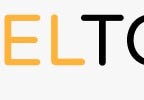Explained: Digital Signatures Part 2
Please do read the previous blog in order to keep yourself updated on the first part of the topic.
Classes of digital signatures
There are three different classes of Digital Signature Certificates:
- Class 1: Cannot be used for legal business documents as they are validated based only on an email ID and username. Class 1 signatures provide a basic level of security and are used in environments with a low risk of data compromise.
- Class 2: Often used for e-filing of tax documents, including income tax returns and Goods and Services Tax (GST) returns. Class 2 digital signatures authenticate a signee’s identity against a pre-verified database. Class 2 digital signatures are used in environments where the risks and consequences of data compromise are moderate.
- Class 3: The highest level of digital signatures. Class 3 signatures require a person or organization to present in front of a certifying authority to prove their identity before signing. Class 3 digital signatures are used for e-auctions, e-tendering, e-ticketing, court filings and in other environments where threats to data or the consequences of a security failure are high.
Uses of digital signatures
Industries use digital signature technology to streamline processes and improve document integrity. Industries that use digital signatures include:
Government — The U.S. Government Publishing Office publishes electronic versions of budgets, public and private laws and congressional bills with digital signatures. Digital signatures are used by governments worldwide for a variety of uses, including processing tax returns, verifying business-to-government (B2G) transactions, ratifying laws and managing contracts. Most government entities must adhere to strict laws, regulations and standards when using digital signatures.
Healthcare — Digital signatures are used in the healthcare industry to improve the efficiency of treatment and administrative processes, to strengthen data security, for e-prescribing and hospital admissions. The use of digital signatures in healthcare must comply with the Health Insurance Portability and Accountability Act of 1996 (HIPAA).
Manufacturing — Manufacturing companies use digital signatures to speed up processes, including product design, quality assurance (QA), manufacturing enhancements, marketing and sales. The use of digital signatures in manufacturing is governed by the International Organization for Standardization (ISO) and the National Institute of Standards and Technology (NIST) Digital Manufacturing Certificate (DMC).
Financial services — The U.S. financial sector uses digital signatures for contracts, paperless banking, loan processing, insurance documentation, mortgages, and more. This heavily regulated sector uses digital signatures with careful attention to the regulations and guidance put forth by the Electronic Signatures in Global and National Commerce Act (E-Sign Act), state UETA regulations, the Consumer Financial Protection Bureau (CFPB) and the Federal Financial Institutions Examination Council (FFIEC).
